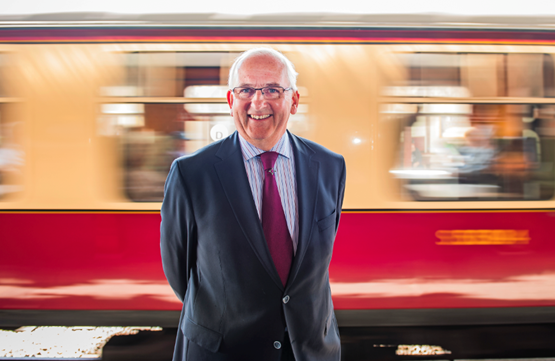 Read the peer reviews for this feature
Read the peer reviews for this feature
Brunel’s Great Western Railway has consistently shown itself to be a fertile testbed for the most modern techniques of their day in railway construction and operation.
Sonning Cutting, the elliptical bridge at Maidenhead and Severn Tunnel are among the Victorian engineering marvels to grace the route, while Broad Gauge, Automatic Train Control and the world’s fastest diesel locomotive all subsequently made their debuts there.
Commencing in 2010, Network Rail’s planned modernisation of the route looked destined to enhance this reputation, by setting new standards in programme delivery and efficiency. But poor cost control and much-criticised project management has since blown full electrification considerably off-course, while necessitating the extensive re-engineering of a new fleet of Intercity Express Programme bi-mode trains that will begin entering traffic with Great Western Railway later this year.
Slammed by the Public Accounts Committee as a “stark example of how not to run a major project”, the protracted Great Western Main Line upgrade will remain a noisy and unwanted distraction for Network Rail well into Control Period 6 (2019-24), under a revised delivery schedule.
Meanwhile, it has also served to bolster the Western Route’s suitability for putting yet another new development through its paces. This is a new joint Supervisory Board, on which both track and train operators will sit, in a pilot lasting until the end of 2017.
Allowing NR’s route businesses to integrate and work more closely with train and freight operating companies is hardly a new idea. Supervisory Boards are just the latest stop in a devolutionary journey that has already resulted in NR entering into formal operational alliances, and aligning objectives through new route scorecards, in order to improve the lot of passengers.
NR’s Route MDs have also reported a significant empowerment of their authority over operational matters and expenditure, as both Sir Peter Hendy (Chairman) and Mark Carne (Chief Executive) have energetically led the assault on over-centralisation and a commonly perceived disconnection with the railway’s customers.
Full integration is likely to be trialled by the independent organisation East West Rail, once a scoping report compiled earlier this year by its chairman Rob Brighouse has finally been published (RailReview Q1-2017). However, this is a targeted venture intended for a single piece of infrastructure, leaving Supervisory Boards as the chosen and more widely deployable method to increase operational integration and joined up decision-making on a network-wide basis.
Spearheading this ambition, the Western Route Supervisory Board pushes NR’s Western Route together with the line’s principal train operators Great Western Railway and Heathrow Express, in order to help improve long-term planning and to align strategic priorities. Passenger representation has also been secured via the involvement of Transport Focus, as a fixed reminder of the overarching objective to improve the end-user experience, and minimise further passenger disruption throughout the ongoing route upgrade.
The Board met for the first time in April, and will continue to meet every four weeks under the chairmanship of career railwayman Dick Fearn.
Fearn is assuredly well-qualified for the task of uniting its membership, given his past experience of sitting on all sides of the table. His previous roles include divisional director at British Rail, zone director at Railtrack and TOC MD, while his final senior position prior to retirement in 2013 was to run Irish Rail. This handed him an unrivalled insight into individual decision-making by track and train operators, with an added perspective of life within the fully integrated and nationalised environments of BR and Irish Rail.
Recalibrating the balance of power held between those in central authority and in management at route level has long been Fearn’s ambition, and he welcomes the prospect of playing a key part in bringing that goal a step closer to reality.
“I don’t want to sound cynical here as an old railwayman, but this is not new. We’ve been here before. When I was one of the zone directors at Railtrack, the chief executive at the time very firmly believed in the emphasis being on the routes, or the zones as we called them in those days.
“But I think the accidents that affected Railtrack at the turn of the century led to a real centralisation. Maybe at that time it was necessary, but I very firmly believe in a devolved railway. One of the first things I did when I went to Ireland was create route-based general managers, as I found a very centralised affair with people having limited responsibility in the field.
“At NR, Mark Carne also thinks that if you over-centralise things then you constrain innovations and people’s ideas in the field, to the point where they just follow the centre. That’s what is now changing on Britain’s railways.
“It worked for me over there, so when Mark Carne asked me to get involved in this board as an independent chairman, I said yes straightaway. I think it follows on from the agenda he is, and I was then, trying to promote.”
Fearn’s independence from NR was also a crucial factor in his appointment, as he vitally needed to uphold cross-party confidence in the fair-handedness of his chairmanship.
He also stresses that although championed by NR, the board is very much a joint enterprise - co-sponsored and co-funded by all partners, in a coalition of the willing.













